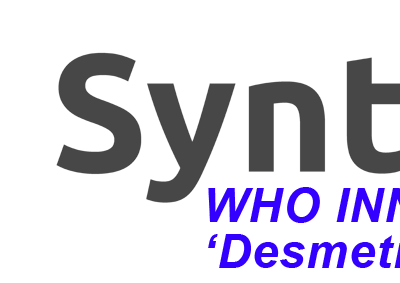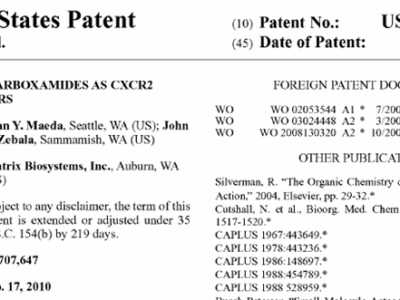
Syntrix today announced that it has entered into a Cooperative Research and Development Agreement (CRADA) with the National Cancer Institute (NCI), part of the National Institutes of Health (NIH). As part of the CRADA, Syntrix will collaborate with NCI’s Laboratory of Tumor Immunology and Biology and Center for Cancer Research to arrange and conduct preclinical and clinical trials to evaluate the investigational immunotherapy agent SX-682.
The collaborative preclinical and clinical studies will be co-led by Dr. Jeffrey Schlom, chief of the Laboratory of Tumor Immunology and Dr. Dean Maeda, Syntrix Director of Medicinal Chemistry and Preclinical Development. Under the CRADA, the investigational immunotherapy SX-682 will be studied alone, and in various combinations with other immunotherapies and standard therapies across a range of cancers.
John Zebala, M.D., Ph.D., CEO of Syntrix, said that “We are looking forward to combining our expertise with those at the NCI to explore targeting the immune system using SX-682 in various combinations with other immunotherapies. The CRADA is an important collaboration for us as we seek to realize the full potential of targeting myeloid cells in immunotherapy and ultimately transform cancer treatment.”
ABOUT SYNTRIX: Syntrix is a pharmaceutical company committed to discovering and delivering innovative therapies by doing things differently. We innovate in discovery and clinical trials, engineer risk prospectively, integrate IP strategy creatively, and leverage non-dilutive capital to solve the most difficult clinical problems. Convergent Science & Strategy. Breakthrough Medicines.
DISCLOSURE NOTICE: This release contains forward-looking information that are based on company management’s current beliefs and expectations and are subject to currently unknown information, risks and circumstances and actual results may vary from what is being currently projected. In addition, from time to time, Syntrix or its representatives have made or may make forward-looking statements, orally or in writing. Forward-looking statements can be identified by the use of forward-looking words such as “believe,” “expect,” “intend,” “plan,” “may,” “should”, “could” or “anticipate” or their negatives or other variations of these words or other comparable words or by the fact that these statements do not relate strictly to historical or current matters. Forward-looking statements relate to anticipated or expected events, activities, trends or results as of the date they are made. Because forward-looking statements relate to matters that have not yet occurred, these statements are inherently subject to risks and uncertainties that could cause Syntrix’s actual results to differ materially from any future results expressed or implied by the forward-looking statements. Many factors could cause Syntrix’s actual activities or results to differ materially from the activities and results anticipated in such forward-looking statements. Syntrix does not undertake any obligation to publicly update these forward-looking statements, whether as a result of new information, future events or otherwise.
Media Contact: Aaron Schuler, PhD, 253-833-8009, x21



